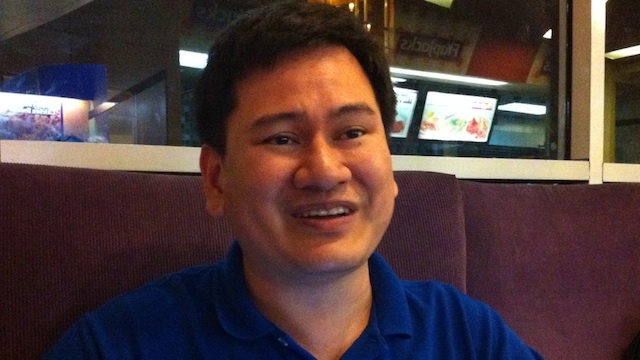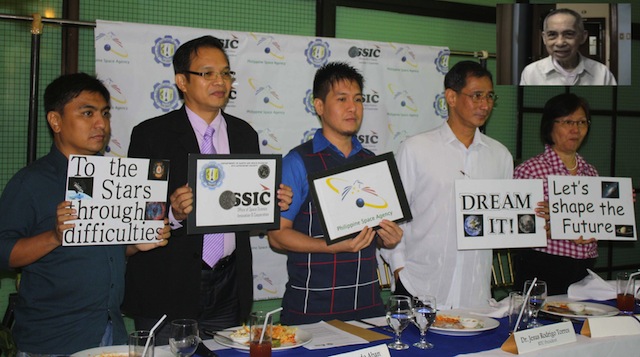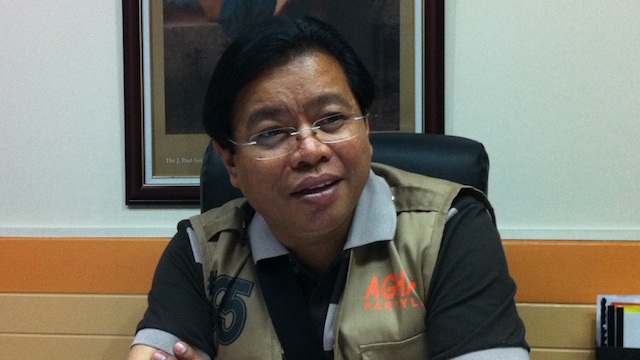SUMMARY
This is AI generated summarization, which may have errors. For context, always refer to the full article.

MANILA, Philippines – Decades since the space race between the United States and the Soviet Union began, humans have come a long way in exploring and harnessing space.
The Curiosity has landed on Mars; several space probes are whizzing past planets on their way out of the solar system; and dozens upon dozens of satellites are currently orbiting our planet, facilitating faster communications, monitoring our weather, and doing much more.
Countries around the world are joining the race to tap space science and technology, and many consider it as a top priority in their research and development. Filipinos, however, feel that the country is left on the sidelines as our neighbors launch satellites and engage in various space-related projects.
This begs the question: does the Philippines need its own space program?
“It’s not a space agency that [many] are thinking of, that has rockets being launched, [or] sending people to the moon,” said Dr Alfredo Mahar Lagmay, head of the National Operational Assessment of Hazards (NOAH).
Space science isn’t just about sending vehicles, probes, or people to space. Around the world, various countries have established space agencies and programs that do a variety of work, from astronomy to disasters, from telecommunications to education.
Closer to home, Southeast Asian countries such as Indonesia, Thailand, Malaysia, and even tiny Singapore have their own programs, with work ranging from meteorological research, to remote imaging and sensing.
The Philippines isn’t really “behind” in this field; we currently have a handful of programs and agencies involved in space science, research, and technology.
These include the state weather bureau PAGASA, which handles astronomical science; the National Mapping & Resource Information Agency (NAMRIA); and even the National Disaster Risk Reduction and Management Council (NDRRMC), which handles disaster risk management.
However, “the functions of a space agency are scattered across the government bureaucracy, so the problem is there is no clear, definite plan or agenda for the Philippines as a whole,” said Dr Rogel Mari Sese, an astrophysicist at the University of the Philippines in Los Baños.
A single, inclusive program or agency would help unite these and streamline projects, than to simply invest in the existing ones.
“There are existing government and private agencies, whose resources can be pooled or consolidated through a congressional action,” according to Dr Bernardo Soriano, former chief of the Atmospheric, Geophysical and Space Sciences Branch of the PAGASA..
Last December, a bill was filed in the House of Representatives that seeks to establish the country’s own space program – House Bill 6725, or the Philippine Space Act of 2012 (see full text below), filed by Agham Partylist Rep. Angelo Palmones.
Earlier efforts to have one agency for space science have fizzled due to various reasons. Prior to HB 6725, the most recent was in 2005, when Soriano submitted an Astronomy Road Map to the PAGASA. It did not prosper because it was not a priority area for the agency then, he said.
It would be “utilitarian, practical and suited for a developing nation,” said Dr Custer Deocaris, a DOST Balik Scientist, a professor of astrobiology at Rizal Technological University, and one of the proponents of HB 6725.
Starting them young
If the country does decide to have a unified and institutionalized space program, two questions will inevitably follow: Can we afford it? And will we be able to sustain it?
The Philippines only has a handful of scientists, engineers and technocrats who understand space science. To ensure that there will be people who will run the program, the country should have a strong training/re-training system for local scientists, and find a way to encourage Filipino scientists based abroad to go back home.
“A lot of [Filipino] scientists who abroad are waiting for change to happen. They will return [if the agency is established],” Deocaris told Rappler.
The best way to have a corps of competent scientists and engineers, however, is to start early – and this means investments in science, technology, engineering, and mathematics education.
Science education in all levels – from elementary to post-graduate – should be strengthened to encourage more students to take up science and engineering careers. Starting them young is key, both Sese and Palmones said.
Various major universities already have existing research in space-related subjects such as astrophysics, and the country recently had its very first Astronomy program, based at the Rizal Technological University. These should be developed to become at par with other established programs around the world, and investments in facilities and human capital will be needed.
“Unless we start developing the youth’s interest in science and mathematics, then it won’t change,” the Agham Partylist representative said.

“It has to be sustainable, and the only way to have a sustainable space agency or space program, is to train the people, to educate the people who will be part of these units,” Sese said.
If established, the program or agency could initially focus on disaster science and telecommunications, both urgently needed in the country, suggested Soriano.
“The space agency can design and develop several low-altitude remote sensing and communications satellites for natural hazards/risk monitoring and disaster management activities,” he said.
Ideally, the agency should be up and running in 3 to 5 years from establishment, but both Palmones and Sese said a realistic timeline would be at least 10 years, taking into account training people, organizing the bureaucracy, and streamlining plans.
Public, private support
House Bill 6725 calls for at least P500 million to put up the agency, but operating it would certainly need more than that – and the private sector will have a role to play.
It calls for public-private partnerships to help fund the program. “PPP will make possible the pursuit of ambitious yet practical programs needed to build the country’s essential space infrastructure,” said Deocaris.
But in the long run, he said, the agency will be “self-sustaining and revenue-generating.”
Industries who rely on space technology, such as broadcasters and telecommunications companies, will stand to reap the benefits of a space program, said Palmones, so he sees their involvement crucial.
“We have to bring them in, and make them stakeholders of this,” he said.
Lagmay, however, thinks that the initiative should really come from the top levels of government.
“Just like in any program, like Project NOAH, the command must come from the top. It must come from the top. There must be a policy in that direction to support having a space agency, to support using all these advanced science and technology… for pushing for developmental gains,” he said.

The latest push for a space program has hit a snag: HB 6725 was filed as Congress drew to a close. But Palmones is confident they will be able to re-file the bill in the next Congress, and find support for it among lawmakers, both at the House and the Senate.
He said Agham is already working with the Congressional Commission on Science, Technology and Engineering (COMSTE), so that the measure will be included in the priority bills of the Legislative-Executive Development Advisory Council (LEDAC).
“Medyo matagal ang development nito. We have to start somewhere — and we have to start now,” he said. “It will be a product of hard work: it is hard, but it will work.”
(Development will take some time. We have to start somewhere — and we have to start now.)
Skeptics will shrug off the idea of a Filipino space program as a pipe dream – shouldn’t the government focus instead on more important things, such as poverty alleviation?
“You might think that cost be used for poverty alleviation projects, but in itself, its a poverty alleviation project in the long run. [The cost] should not be considered a waste of money, should not be considered as a cost, [but] should be considered as an investment, because in the long run, its the tools that we need for development, for progress,” said Lagmay.
“When we reduce significant yearly losses due to disasters, the amount that should have been lost will contribute to the creation of more wealth for our country,” added Soriano.
Inevitable part of PH’s future
Even if a bill establishing the agency isn’t passed now, a space program or agency will be an inevitable part of the country’s future.
“We’re actually moving in that direction. We’re trying to pursue the use of such technologies for our benefit,” Lagmay said. “It’s the way to go also, because our neighbors in the region have space agencies – not necessarily sending people to the moon, but they are using space technology, which is a big part of what constitutes a space agency.”
“Just like in any program, like Project NOAH, the command must come from the top. It must come from the top. There must be a policy in that direction to support having a space agency, to support using all these advanced science and technology… for pushing for developmental gains,” said Lagmay.

It is also an issue of national security – especially when it comes to satellite technology. “Nakikisakay lang tayo. iyong Agila (satellite) natin, nakikisakay lang sa China. Malay natin kung ine-encrypt yung information na galing sa atin?” said Palmones.
(We just use other countries’ satellite technology. For example, our Agila satellite is being carried by China. What if they are encrypting data we’re supposed to send?)
Developing our own space program is not just about national security, or ease of access to data – it is also about cultivating the country’s science and technology sector to a level at par with the global standard.
“Hindi tayo pwede matulog at sabihin na, ‘eh ano ngayon kung nauna na ang Sri Lanka? Eh ano ngayon kung nauna na ang Bangladesh?” said Palmones. “Matalino ang Pilipino. Kaya natin ito… we cannot just be dependent on transfer of technology.”
(It’s not enough to say, ‘so what if Sri Lanka or Bangladesh are ahead of us?… Filipinos are intelligent, we can do it. We cannot just be dependent on transfer of technology.)
“It is only Filipinos that can really help ourselves. Okay, its good to have development assistance, its good to have technologies, but in the long run… [the program] should be ours,” Lagmay added.
“We now take pride in beauty contests, in boxing, in singing. Someday our people will be proud that we are capable too of improving our lives with science,” said Deocaris.
Who knows, we could even see a real astronaut – not just a space tourist – years from now. “It may be a dream, but a doable dream,” Palmones said. – Rappler.com
Add a comment
How does this make you feel?
There are no comments yet. Add your comment to start the conversation.